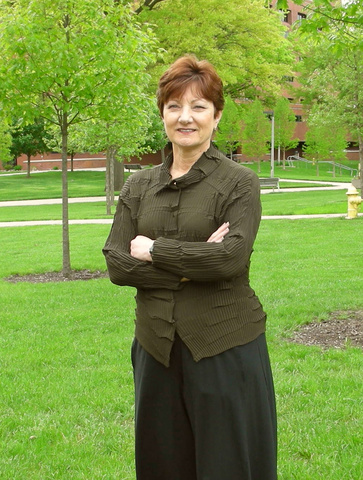 What is your hometown?
What is your hometown?

Anaheim, Calif. (I was born in Williston, North Dakota and moved to California when I was 6).
How/when did you become interested in science and/or medicine?
I became interested in the biological sciences as an undergraduate student at UCLA. I was always interested in math and science in grade school, but in college I fell in love with human biology when I took courses in human anatomy and human physiology. I was fortunate to have the opportunity to get involved in research as an undergraduate and was accepted into the Departmental Scholars program that allowed me to work simultaneously towards a bachelor and masters degree. I worked in a laboratory that was studying skeletal muscle function and plasticity, and became fascinated with the adaptability of muscle and went on to get my Ph.D. in physiology with an emphasis on the neuromuscular system.
When did you join the University of Iowa faculty?
I joined the faculty in July 2017.
How or why did you choose to join the faculty at the University of Iowa?
I have taken a very non-traditional career path. One that I would never have predicted. I started by career in academia then moved to biotech for 7 years and then back to academia. Each move presented new challenges, but enhanced my career and provided me with new knowledge and skills. I moved to the University of Iowa because it provided me the opportunity to build my research program. The facilities and collaborative environment were a major attraction, as was the opportunity to work directly with my friend and colleague, Chris Adams.
Is there a teacher or mentor who helped shape your career?
The person who influenced my scientific career the most was Dr. V. Reggie Edgerton, my PhD advisor at UCLA. In Dr. Edgerton’s lab I was exposed to a broad array of techniques and to integrative science. In his laboratory, science was driven by questions and not techniques. I learned not to be afraid of pursuing questions that were outside of my area of expertise.
How do you see your faculty role impacting medicine and/or science?
At this stage in my career I think that I can have the greatest impact as a mentor, helping trainees and junior faculty achieve their scientific goals and advance their careers.
What is the biggest change you've experienced in your field since you were a student?
Advances in technology have had a major impact on the field of muscle biology and allowed for major advances in the last twenty years in our understanding of the mechanisms that regulate skeletal muscle mass, metabolism and adaptation. These advances have brought the field much closer to actually having pharmaceutical therapies for the treatment of skeletal muscle atrophy.
What one piece of advice would you give to today's students?
Success as a scientist is about persistence. Don’t be afraid to explore new ideas and to challenge the dogma when you think that it is wrong. Don’t simply follow the path that everyone else is taking.
In what ways are you engaged in professional activities outside the University (i.e. population based research, mentoring high school students, sharing your leadership/ expertise with organizations or causes, speaking engagement off campus, etc.)?
Over the past 10 years, I have become increasingly involved in the American Physiological Society. For the past 9 years I have been involved with the APS journals, first on editorial boards, then as an Associate Editor and now as an Editor-In-Chief. This year I was elected to the APS Executive Council as a Councillor and am very excited about taking a leadership role in the society during this time change and new directions.
What are some of your outside (personal) interests?
I love dogs and currently have two golden retrievers with whom I enjoy spending time. I enjoy gardening and spending time outdoors hiking and exploring. I enjoy traveling and would like to see more of the US and the world.